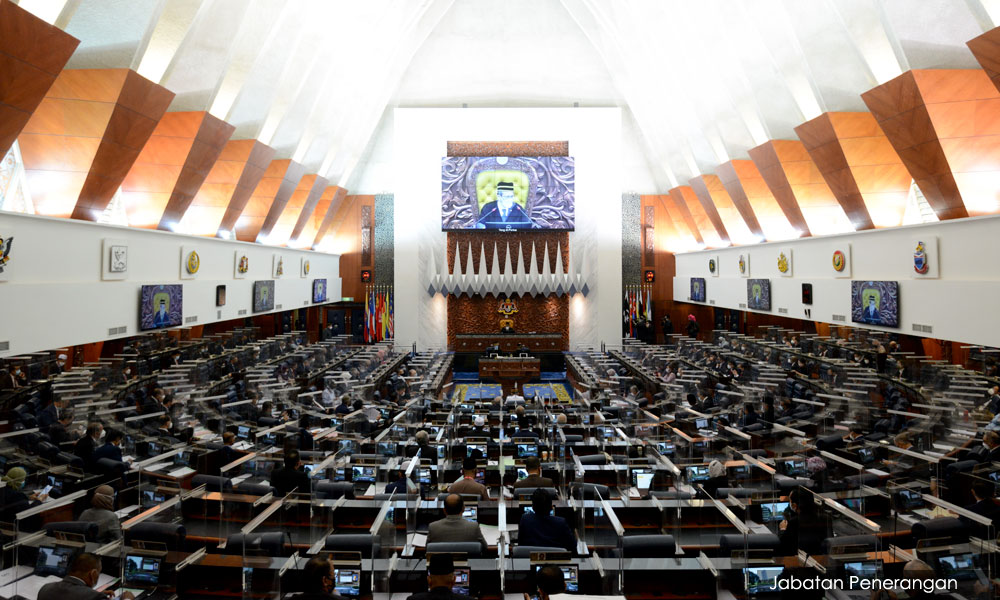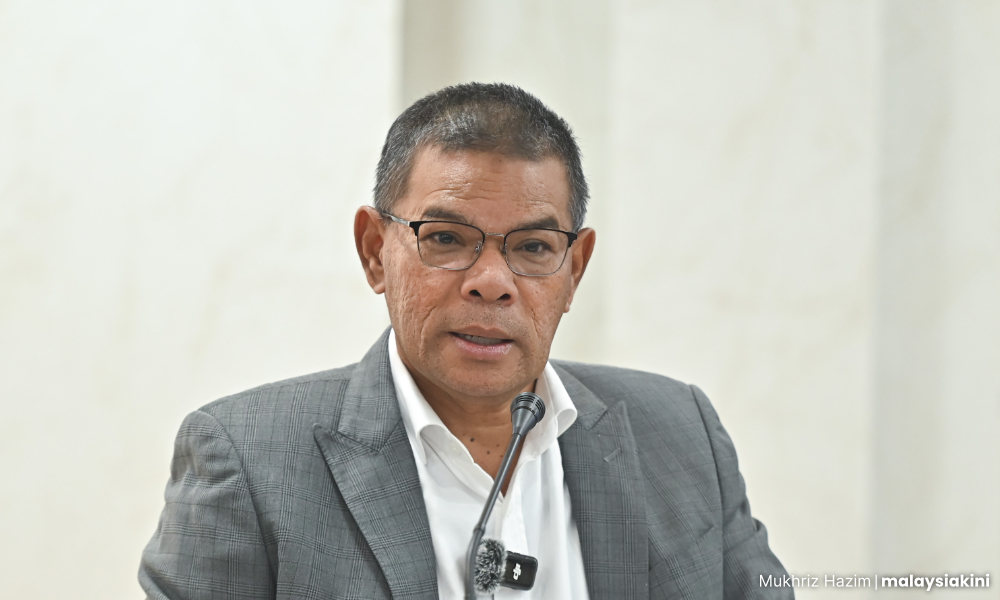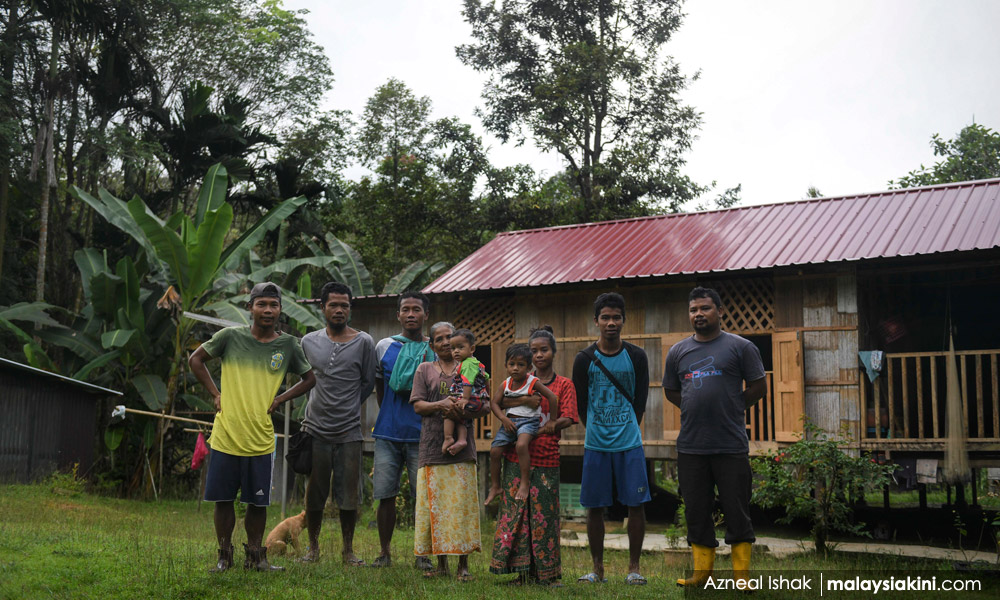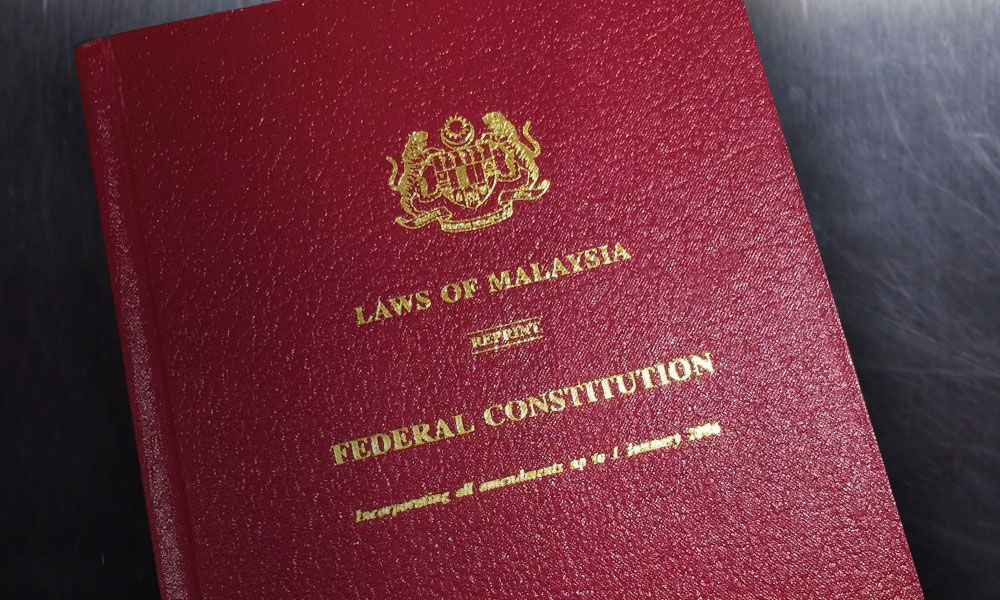Human rights lawyer Eric Paulsen urged the government to set up an independent body to scrutinise the amendments to citizenship laws before they are debated in the Parliament in the next sitting.
According to the Lawyers for Liberty co-founder, the committee should include the Attorney-General’s Chambers as the main coordinating body, as well as representatives from the United Nations (UN), other ministries, academicians, activists and relevant stakeholders.
Paulsen added that a sufficient timeframe should be set for MPs to review the bill in detail, as well as to conduct thorough discussions and consultations.
"There should be an open session to discuss the bill once it's presented to the committee. It cannot be rushed.
"MPs must have time to look through the bill, and they must be able to discuss it with others. This is not something that you (the government) can just bulldoze through," Paulsen told Malaysiakini.
He opined that not all MPs, be it from the government, or the opposition, will support (amendments to) the bill.

"Especially those from Sabah and Sarawak, because there are a lot of natives in the two territories who shockingly still hold PR (permanent resident) status. The MPs are answerable to them.
"We also have MPs who are vocal about human rights issues; I'm sure they have different views," said Paulsen.
Last Monday, Home Minister Saifuddin Nasution Ismail first tabled the proposed amendments to the Federal Constitution on citizenship laws at the Dewan Rakyat.
This comes after the government agreed to drop a controversial constitutional amendment, which would deny automatic citizenship to foundlings.
The government also dropped an amendment that would affect stateless Orang Asli.
However, the debate on the proposed amendments was deferred to the next Dewan Rakyat sitting, which will commence in late June, just as it came for a second reading.
Get stakeholders’ input
Paulsen, who was also the former Malaysian representative to the Asian Inter-governmental Commission on Human Rights from 2019 to 2021, said that speaking to key stakeholders would provide better insights on the matter.
“They need to speak to other experts and compare the laws in other countries such as Singapore, Australia or India.
“But now, because the Home Ministry is the only one in charge of this whole thing, we just have to accept it? There are no options given,” he said, adding that discussions would show the pros and cons of the amendments.

Paulsen claimed that while there were invitations extended to some NGOs to talk about the matter, they were done at the eleventh hour and “half-heartedly”, where the bills were not even fully presented.
He then accused the Home Ministry of not having a "sense of reality" for not understanding the real plight faced by the stateless, especially the Orang Asli, in applying for citizenship.
“The fact that the Orang Asli are asked to prove their citizenship is evidence of this.
"The Orang Asli live in the jungle because that is their life. If you treat them like somebody who lives in the city, they will not be able to comply with your requirements."
Citing a scenario, Paulsen questioned what would happen if an Orang Asli applicant failed to provide the necessary certificates for citizenship application.
“You (ministry) told them that to apply for citizenship, they need to provide a birth certificate, children’s birth certificate, marriage certificate, father’s birth certificate and identification.
“But what if the applicants say their father is very old, and therefore, doesn’t have a birth certificate? Or that their parents were unmarried?
“Then, they (the ministry) would just say, too bad lah,” he quipped.
Paulsen noted that applying for citizenship is also a time and money-consuming exercise for the Orang Asli.

“Even for somebody who lives in the city, if they want to go to the ministry, it might take them half a day to deal with everything. Imagine the situation when it comes to somebody who lives very deep in the jungle,” he noted.
Saifuddin recently said that Orang Asli who are PR (permanent resident) card holders can apply for citizenship by showing evidence of having resided in the country.
Equal rights for mothers
Meanwhile, Paulsen lauded the amendments which gave equal rights to women to confer automatic citizenship to overseas-born children.
The amendments are to Article 14(1)(b), Sections 1(b) and 1(c) of Part II of the Second Schedule.
Currently, the sections only provide automatic citizenship to individuals born overseas to a Malaysian father after Sept 16, 1963 (Malaysia Day) and not if only the mother is Malaysian.
The proposed amendments intend to replace the words “whose father” with “at least one of the parents” to grant equal rights for women to confer citizenship to children born overseas.
Paulsen dubbed this a winning step toward equal rights to mothers, and a win for the government, should it go through.
"It would be a huge win for the government because it is a very progressive amendment, which provides equality to women, resolves statelessness in this particular category of children and bodes well for the future of the country."
‘Trust me, bro’ won’t work
Having said that, Paulsen said the Home Ministry should consider losing its "overly rigid" criteria to provide feasible alternatives for the stateless to attain citizenship.
He also slammed Saifuddin's "trust me bro" promises, alluding to the assurance by the minister that citizenship applications will be facilitated if everything is in order.
According to him, not everything that the ministry says can be accepted "wholesale" because some are either exaggerated or untrue.

"He (Saifuddin) tried to say 'trust me bro' but we cannot trust the ministry. We can only trust the law, the Constitution, and what is written in black and white,” Paulsen stressed.
In conclusion, Paulsen summarised the amendments as "as a step forward, giant leap backwards", in the sense that only one amendment (pertaining to mothers conferring citizenship to overseas-born children) is positive, while the rest are all negative.

No comments:
Post a Comment
Note: Only a member of this blog may post a comment.